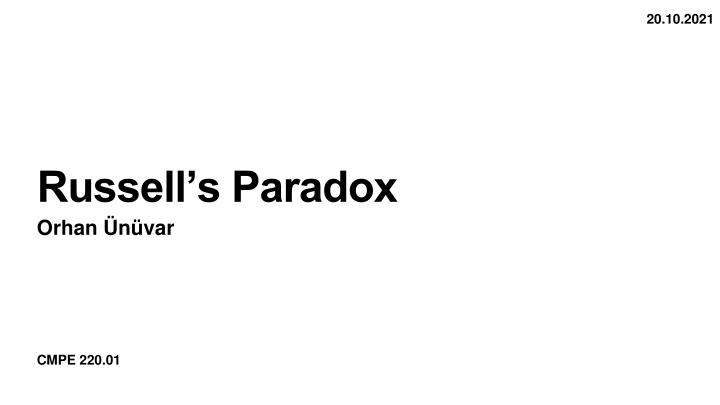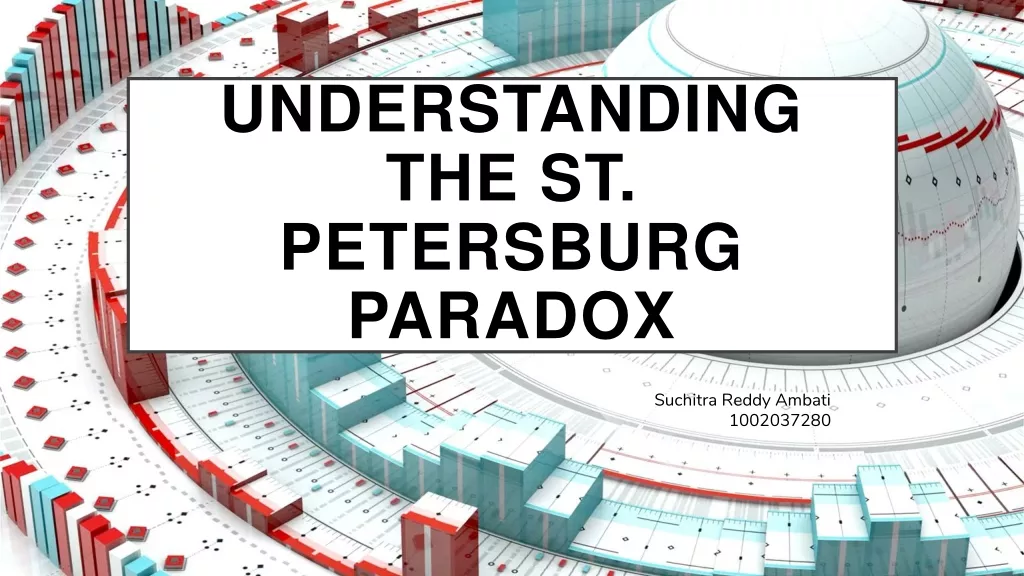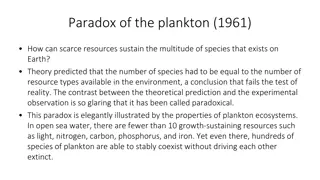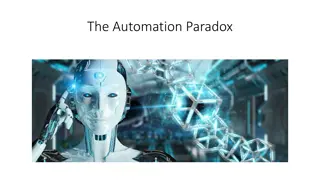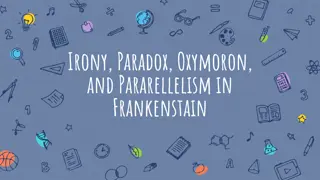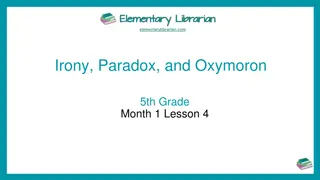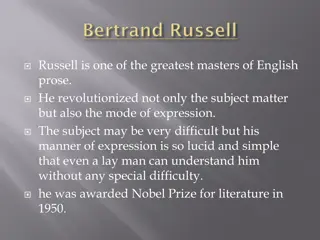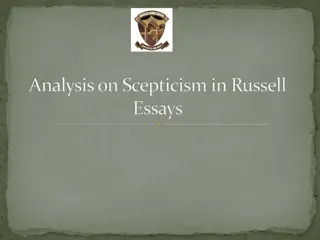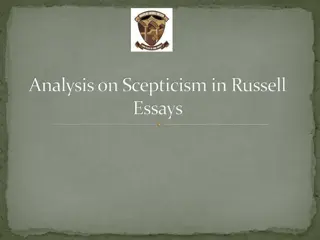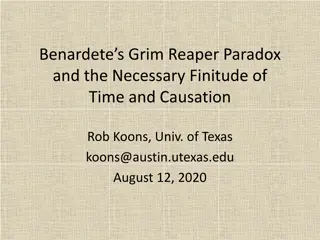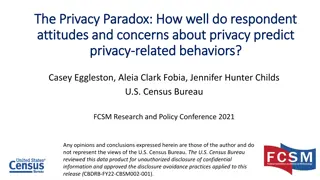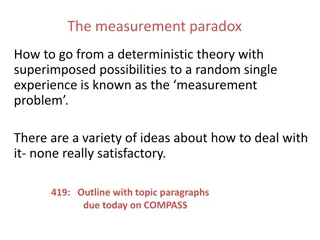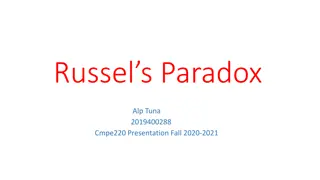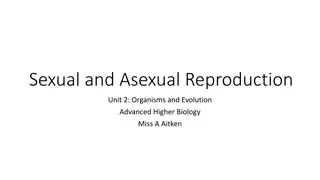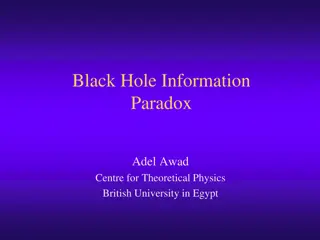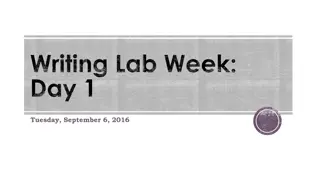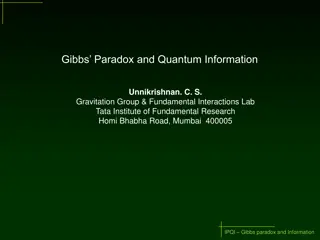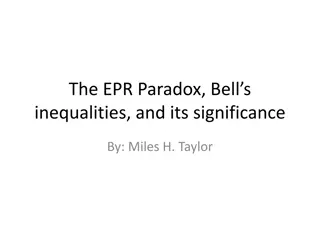Russell’s Paradox
Bertrand Russell discovered the paradox in 1901 while examining Gottlob Frege's work. The paradox challenges the notion of sets and self-inclusion, leading to contradictions and the need for restricted comprehension principles. Explore other paradoxes like the Barber Paradox and the Omnipotence Paradox, highlighting the importance of precision in mathematics.
Download Presentation

Please find below an Image/Link to download the presentation.
The content on the website is provided AS IS for your information and personal use only. It may not be sold, licensed, or shared on other websites without obtaining consent from the author.If you encounter any issues during the download, it is possible that the publisher has removed the file from their server.
You are allowed to download the files provided on this website for personal or commercial use, subject to the condition that they are used lawfully. All files are the property of their respective owners.
The content on the website is provided AS IS for your information and personal use only. It may not be sold, licensed, or shared on other websites without obtaining consent from the author.
E N D
Presentation Transcript
20.10.2021 Russell s Paradox Orhan n var CMPE 220.01
History Bertrand Russell discovered the paradox in 1901 while examining the logical foundations of the Gottlob Frege's 1879 "Begriffsschrift" and wrote about it in an 1902 letter to him. Actually Ernst Zermelo also discovered it himself 1899 but did not publish it. And Georg Cantor was actually already suspecting at the end of 1890s that his theory of sets that he founded in 1874 would lead to a contradiction.
Russells Paradox Suppose there exists the set of all and only those sets which do not include themselves (i.e. which are not elements of themselves) and call it R. Now ask the question: does R include itself? Suppose it does. Then it is not an element of itself by the definition of R, which is a contradiction. Now suppose it doesn t. Then it satisfies the membership condition of R, therefore is a member of R, which again is a contradiction. We conclude that such a set R does not exist.
Explanations One explanation is that the collection R is too big to be an actual set. But this explanation begs the question: what does it mean for a collection to be too big ? A more meaningful explanation is that the unrestricted comprehension principle is too powerful . We shouldn t be able to create a set out of thin air using ANY predicate whatsoever. Instead, we need a restricted comprehension principle (also known as axiom schema of specification). We can only create sets using predicates by sifting already existing sets.
Barber Paradox Suppose there exists an all powerful (!) barber who can unconditionally decide whom he will shave or not, and that he decides he will shave all and only those men who don t shave themselves. Now ask the question: does the barber shave himself? Suppose he does. We arrive at a contradiction since by his decision he shaves only those who don t shave themselves. Now suppose he doesn t. We again arrive at a contradiction since by his decision he shaves all those who don t shave themselves. We conclude that such an all powerful barber does not exist.
Omnipotence Paradox Suppose there exists an omnipotent being (i.e. a being that is capable of doing ANYTHING). Then this being should be able to create an immovable object. But also, this being should be able to create an unstoppable force. Now suppose that this immovable object and this unstoppable force encounter each other. There are 2 possibilities: the immovable object moves or it doesn t. In any case we arrive at a contradiction.
Takeaway Mathematics have to be precise and rigorous. Paradoxes give us the possibility of examining the logical foundations of mathematical theories. Unrestricted objects and principles can lead to contradictions.
References https://en.wikipedia.org/wiki/Russell%27s_paradox (updated Oct 6, 2021) https://en.wikipedia.org/wiki/Barber_paradox (updated Sep 2, 2021) https://en.wikipedia.org/wiki/Omnipotence_paradox (updated Aug 22, 2021) Paul R. Halmos, Naive Set Theory,Springer, New York, 1974. Herbert B. Enderton, Elements of Set Theory, Academic Press, New York, 1977. Terence Tao, Analysis 1, Springer, Singapore, 2016.
